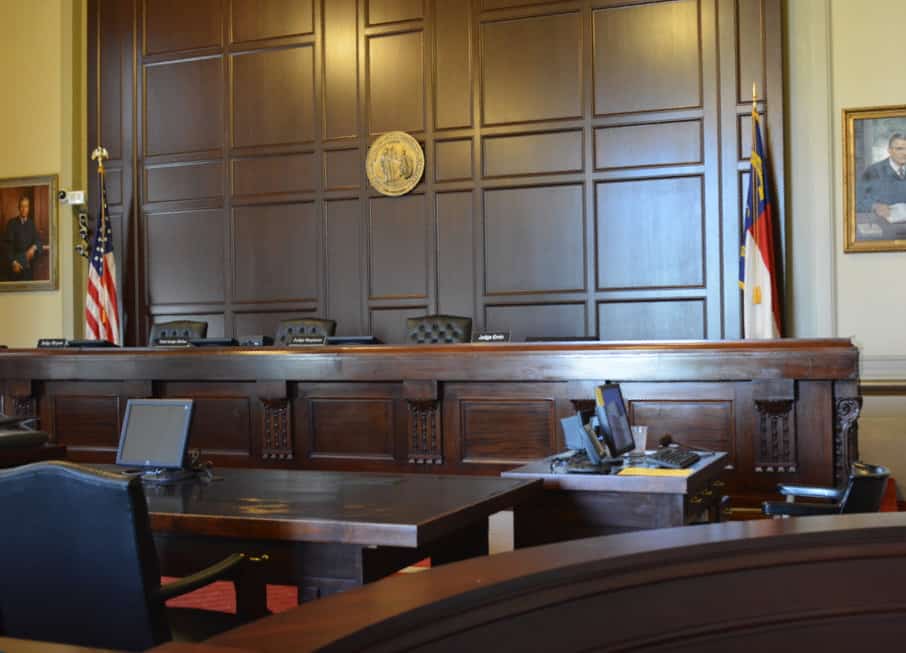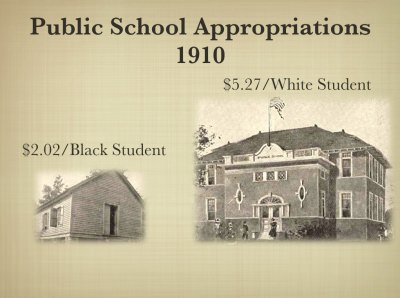

For my 35th — and last — Thursday Transcript, I decided to see what I wrote about the other 34 times. Underlying this query is an admission that I did not have a cohesive strategy for developing themes over the year. So let’s see what it looks like in retrospect.
History of North Carolina
We all know this quote made famous by Martin Luther King:
“The arc of the moral universe is long, but it bends toward justice.”
If we don’t know our history, how do we know what that arc looks like? And how do we help bend it towards justice?
As we talk about the right to education, I want us to know that the words in our Declaration of Rights, Article I, Section 15 were written by Samuel Stanford Ashley — a carpetbagger — who I describe in The missing picture. As we contemplate who should lead education in North Carolina, let us remember that we have A history full of politics in choosing to create a constitutional office of an elected state superintendent. As we continue to strive for a seamless system with higher education, we should know that at one time, we had such a constitutional system. How the inseparable connection was broken is a starting point for considering our options now. And to understand the underlying issues in education equity, I offer the Best lines from Constitutional Tales and the difficult story of the Aycock era so that we can be purposeful in Moving past intentional inequities.
General Assembly
The Thursday Transcript also has been a place for discussion of education policy as it makes its way through the General Assembly — or doesn’t. Game on South Carolina was a challenge for us to commit to a multi-year strategy for addressing the teacher shortage and elevating the teaching profession through new and restructured programs. Moving forward with great programs looks at the excellent regional leadership academies for principals — a funding issue not resolved by the 2015 General Assembly and left as an important issue in 2016. As we look for new approaches, Finding the price tag is important and the Friday Institute’s Digital Learning Plan provides a model for how to incorporate cost into a policy discussion. As we think about 2016, Starting the debate over on funding meals for children will be important: we left the charter school debate in 2015 in a familiar place of recognizing the need for charter schools to provide nutritional lunches so that the schools are accessible to all students but with few options since the state offers only the bare minimum for meals for any of our public school students. Solving employment law riddles asks us to make sense of a disjointed system for deciding the level of job protection for educators.
EdNC creates a space not only to discuss outcomes but also the process.
While we might focus on Averting the driver education crisis, the politics behind the budget provision tells another important story and sets up the conversation on driver education for 2016. And while partisanship might be the familiar story, equally intriguing and important is when significant decisions are made without dissension or debate. And so we ask Who are the winners? when the General Assembly takes away personal education plans for at-risk students or why did we take An option off the table for using biometric technology in cafeteria lines to eliminate stigma and improve accuracy? All of this makes informed advocacy all the more important. So it is significant that a bill that highlighted The General Assembly’s blind spot on advocacy, SB 480, made cross-over and could be considered in 2016. And finally, the General Assembly decided to make its own declarations on constitutional responsibilities with budget provisions that provided Leandro with a twist — a harsher standard of identifying low performing schools and the removal important options for flexibility at the local level.
Courts
Which gets us to the courts. This has been A year for the courts. Attending the oral arguments in the voucher litigation led me to this focus — Opportunity scholarships: The importance of questions. After the North Carolina Supreme Court overturned the trial court decision in the voucher/Opportunity Scholarships challenge, it is important to consider the Next steps after a 4-3 vote. “Career status upheld” is the straightforward title to the article describing the Court of Appeals’ decision. As that decision is on appeal to the Supreme Court, constitutional and policy issues around adequate job protections for teachers is anything but straightforward. There were More arguments on power in other court cases. Television, tests, and the Constitution State Board’s constitutional authority all come together when considering the State Board’s rule-making authority. These highstakes governance issues call on the court to rule on the role and authority of the other branches which leads us to reflect on Why a co-equal independent judiciary matters.
Issues playing out
And these constitutional questions and challenges of authority play out in our education communities. We apply constitutional standards in Sorting through book controversies. In Dealing with obstreperous board members, we sometimes witness an Eruption of democracy — which is what happened with the Moore County community pressed for the reinstatement of their beloved superintendent.
Rethinking schooling
Issues play out more broadly than just in our public school communities. We need to begin the conversation by asking Where are our students? Knowing that the home school community has expanded tremendously requires a rethinking of the relationships with homeschoolers and the Educational opportunities for 100,000 children. In addition to the coverage of the voucher litigation (see above under Courts), the use of taxpayer funds in private schools raises questions about Charting accountability — including exploring the very minimal inspection conducted of private schools by the State. As these discussions around schooling and education continue, I hope a contribution of these articles is to inject into the conversation the fundamental principle that we should care about all of these students — whether in that particular year they are in home school, public charter school, private school with or without a voucher, or in the public school system. We should not build silos but rather be innovative in meeting the needs of all of our children. And for all these children, we should care about their welfare, their safety, and their education.
Community and children
And this leads to the last subset of Thursday Transcript articles. These did not provide legal analysis but rather focused on us as a community and on our children. A child in the woods is a better soccer player is a reminder of the importance of play and childhood — a topic that seemed to resonate with EdNC readers — and perhaps underlies some of the intensity of debates around testing.
In different ways, I have tried to approach the concept of community — that it is The opposite of loneliness, that together we can get about the business of Melding ideas and that we can follow the paths of our heroes in Thinking of community — which for me includes the paths of Jeannes teachers and my mother, Alexa Williams.
I appreciate EdNC’s latitude in my exploring these last issues. As a lawyer, I have a deep respect for our constitution and I am drawn to thinking about our courts and how we create policy. But my sense of hope and optimism for North Carolina and our children rests in our ability to work together as a community. Let’s get to it.


